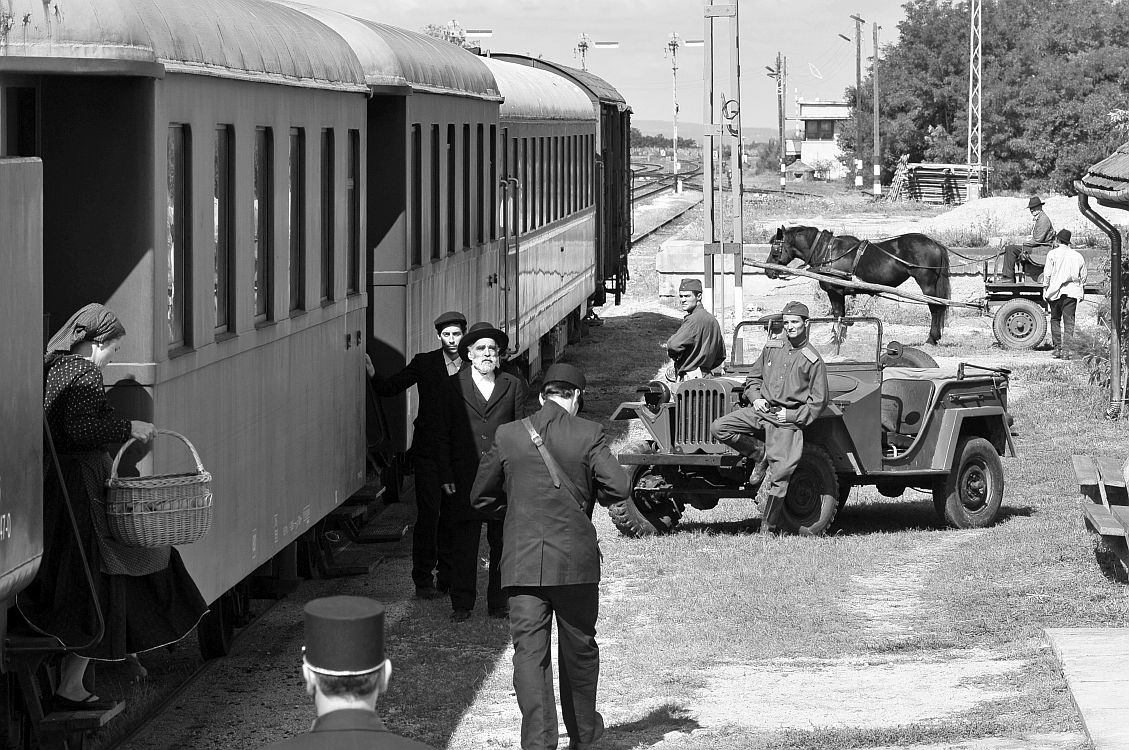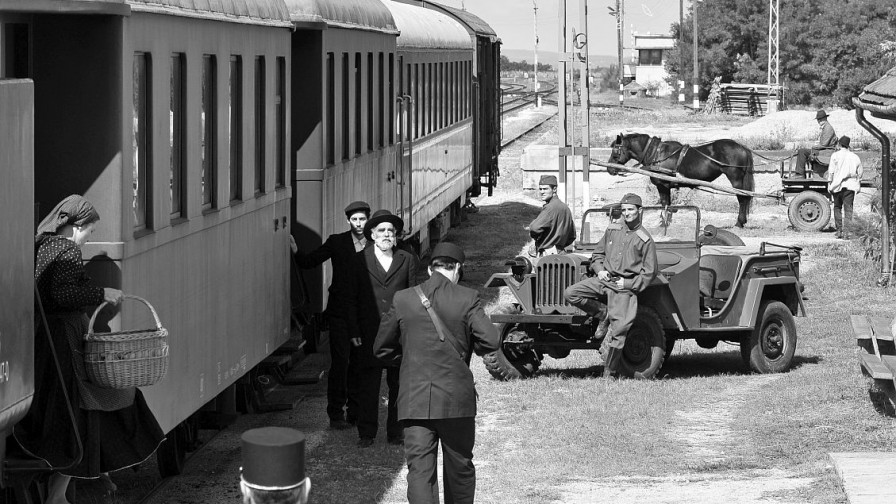'1945' by Ferenc Török wins 3rd prize at Panorama Audience Award
The 19th Panorama Audience Awards was presented by the Berlinale Panorama section in collaboration with radioeins and for the first time in co-operation with rbb television (Berlin-Brandenburg Broadcasting). At the award ceremony Ferenc Török historical movie, 1945, won the 3rd prize at Panorama Audience Award.
Ferenc Török's feature takes place on the shimmering heat of a summer’s day in rural Hungary in August 1945. A kind of torpor envelops the village. The drug store owner is getting ready for his son’s wedding, the signalman is changing the points at the station, and the coach driver is waiting for customers. Two strange men descend from the train, clad in black. They are father and son; survivors of the Holocaust. They walk in silence behind a waggon on which they are transporting two boxes. Rumours spread like wildfire through the village. Do the boxes contain powder, perfume and soap, and are these men going to compete with the local chemist shop? Are they relatives of the former shop owner, a Jew who was first denounced and then deported? Fear soon spreads throughout the community, for many of them were involved in the crimes of the recent past – whether it be betrayal, silence or theft. Things that were almost forgotten now come to the fore with a vengeance. The past is not dead. It has not even passed. Ferenc Török’s film is a non-folkloristic depiction of the interconnection between crime and punishment, presented in sharply contoured black-and-white photography. A Hungarian village becomes a mirror for the failure of an entire society.

Alissa Simon, a film critic at Variety wrote an article about 1945, where she said that "like compatriot director László Nemes’ Son Of Saul, the gripping period drama offers a fresh, intelligent cinematic approach to a difficult topic, and should appeal to niche art house audiences in most territories." She adds that "nothing in helmer Török’s previous filmography would predict his virtuosity here. In a film with surprisingly little dialogue, a fine ensemble cast, including real-life married couple Rudolph and Nagy-Kálózy, convincingly enables this dissection of village life and matters of conscience to be more shown than told." Simon also highlights that the "key to the impact is the superb lensing of veteran DP Elemér Ragályi. The mirrored opening shot, a close-up of István shaving with a straight razor, establishes a sustained tone of impending doom, while his beautifully composed images, frequently framed through gauzy linen curtains, windows, doors, and fences, heighten visual interest." According to her article, not just directing, acting and photography dazzled her, but Simon liked very much the film's score and the customes as well, as she said "deserving of praise are the spare, melancholy score that at times recalls forgotten Jewish melodies from Tibor Szemzö (The Tree of Life), the spot-on period production design by Dorka Kiss, and the believably lived-in costume work of Sosa Juristovszky."
The Panorama Audience Award has been given since 1999. Since 2011, not only the best fiction film but also the best documentary film have received awards. During the festival, moviegoers are asked to rate the films shown in Panorama on voting cards after the screenings. In 2017 a total of 29,000 votes were cast and counted. This year Panorama presented 50 feature-length films from 43 countries, of which 21 screened in the Panorama Dokumente series. The 19th Panorama Audience Awards went to Insyriated by Philipp Van Leeuw for best fiction film and I Am Not Your Negro by Raoul Peck for best documentary.
